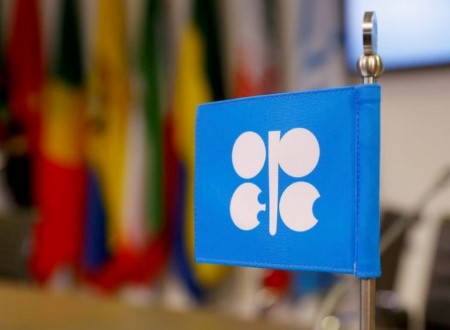




Inflation Update: Weak demand softens shocks
 DOWNLOAD
DOWNLOAD

Monthly Economic Update: Fed cuts incoming
 DOWNLOAD
DOWNLOAD

Consensus Pricing – June 2025
 DOWNLOAD
DOWNLOAD


TOP SEARCHES
Oil drops as weak China factory data fan demand concerns

SINGAPORE, Aug 1 (Reuters) – Oil prices dropped on Monday, as weak manufacturing data from China and Japan for July weighed on the outlook for demand, while investors braced for this week’s meeting of officials from OPEC and other top producers on supply adjustments.
Brent crude futures were down 82 cents, or 0.8%, at USD 103.15 a barrel at 0608 GMT. US West Texas Intermediate crude was at USD 97.44 a barrel, down USD 1.18, or 1.2%.
Fresh COVID-19 lockdowns snuffed out a brief recovery seen in June for factory activity in China, the world’s largest crude oil importer. The Caixin/Markit manufacturing purchasing managers’ index (PMI) eased to 50.4 in July from 51.7 in the previous month, well below analysts’ expectations, data showed on Monday.
Japanese manufacturing activity expanded at its weakest rate in 10 months in July, data showed on Monday.
“China’s disappointing manufacturing PMI is the primary factor that pressed on oil prices today,” CMC Markets analyst Tina Teng said.
“The data shows a surprising contraction of economic activities, suggesting that the recovery of the world-second-largest economy from the covid lockdowns may not be as positive as previously expected, which darkened the demand outlook of the crude oil markets.”
Brent and WTI ended July with their second straight monthly losses for the first time since 2020, as soaring inflation and higher interest rates raise fears of a recession that would erode fuel demand.
ANZ analysts said fuel sales to drivers in Britain were waning, while gasoline demand remained below its five-year average for this time of the year.
Reflecting this, analysts in a Reuters poll reduced for the first time since April their forecast for 2022 average Brent prices to USD 105.75 a barrel. Their estimate for WTI fell to USD 101.28.
The Organization of the Petroleum Exporting Countries (OPEC)and allies including Russia, a group known as OPEC+, will meet on Wednesday to decide on September output.
Two of eight OPEC+ sources in a Reuters survey said a modest increase for September would be discussed at the Aug. 3 meeting, while the rest said output would likely be held steady.
The meeting comes after US President Joe Biden visited Saudi Arabia last month.
“While President Biden’s visit to Saudi Arabia produced no immediate oil deliverables, we believe that the Kingdom will reciprocate by continuing to gradually increase output,” RBC Capital analyst Helima Croft said in a note.
The start of August sees OPEC+ having fully unwound record output cuts in place since the COVID-19 pandemic took hold in 2020.
The group’s new secretary general, Haitham al-Ghais, reiterated on Sunday that Russia’s membership in OPEC+ is vital for the success of the agreement, Kuwait’s Alrai newspaper reported.
Meanwhile, US oil production continued to climb as the rig count rose by 11 in July, increasing for a record 23rd month in a row, data from Baker Hughes showed.
A break for Brent prices below key support level of USD 102.68 could trigger a drop into the range of USD 99.52 to USD 101.26, Reuters technical analyst Wang Tao said.
(Reporting by Florence Tan; Editing by Kenneth Maxwell and Bradley Perrett)
This article originally appeared on reuters.com





 By Reuters
By Reuters